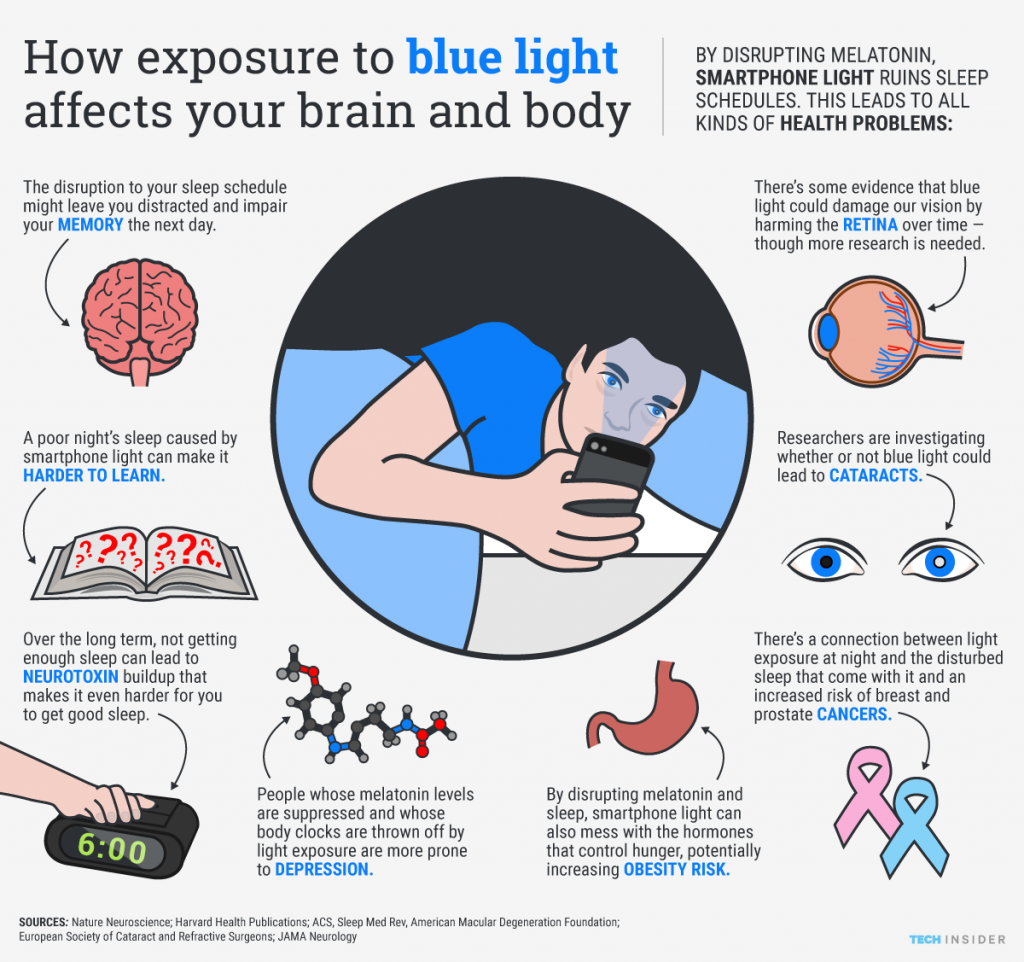Natural Sleep Strategies
|
Did you know that sleeping pills typically slow your breathing and may cause you to breathe much shallower than normal? We're all about drug-free solutions. Check out these 7 Natural Sleep Aids That Work |
|
If you think you'll 'sleep when you're dead' you'll likely get to your grave a lot sooner than those who get regular, adequate sleep! Especially concerning is the rise of sleep deprivation in teens and young adults, which can do serious damage to their mental AND physical health. |
|
Did you know the health benefits of camping include better sleep? It's like hitting the reset button on your internal clock. |
|
The Essentials of Sleep By Dr. John Ferguson
We should spend over a third of our lives sleeping, but many don't understand the significance or importance of getting a good night's rest. The majority of people are not aware that less than 5 hours of sleep per night has been linked with an increased risk of heart disease, migraines and even chronic pain. Sleep is an integral part of the wellness lifestyle.
Is Your Sleep Position Affecting Your Health? Imagine you or your child sitting at a desk for six or seven hours at work or school...hunched over a computer keyboard with legs tucked under the chair...the monitor at an improper angle. When you did finally try to get up, your entire body would mount a protest. The same thing happens to the body after a night of improper sleep posture. When proper bedtime posture isn't maintained, spinal bones (vertebrae) become misaligned: a condition known as vertebral subluxation.
The optimum sleep position is back-to-mattress, with the head and neck cradled in a cervical or down-filled pillow. The goal is to keep the spine as close to its normal alignment as possible. The normal curves are cervical lordosis (c-shaped curve with apex in the anterior or mid-neck), thoracic kyphosis (apex in the posterior of the upper back) and lumbar lordosis (apex in the anterior of the low back). Sleeping on your back keeps your hips aligned evenly. When the curves are over-exaggerated or reversed, you risk vertebral subluxations and related disorders such as arthritis. After all, vertebrae are attached to muscles and other bones via tendons and ligaments. One glance at an anatomical diagram of the back and neck shows that, in one way or another, all the muscles and bones in this region are connected. A misaligned vertebra disrupts the intricate dance between muscles and bones. This disruption creates a state of imbalance, exerting stress on connecting structures and producing discomfort not to mention more serious stress to your nerves exiting from the spine that control organ function like your sinuses, ears, heart, lungs, stomach, gall bladder, reproductive organs, prostate...I think you get the picture. It's no wonder that vertebral subluxations trigger growing pains in little Johnny's spine, neck, hips, legs or feet that manifest themselves later in life as sciatic pain, digestive issues or infertility problems. Stomach Snoozers Sleeping on your stomach is the worst position for your spine. It torques the spine of the neck, reversing the normal curve, and forces rotation. And that's not all. Stomach sleeping can lead to night bruxism, the grinding of teeth while asleep. This condition may be triggered by face pressure against the pillow, which is alleviated by back sleeping. Bruxism is associated with temporomandibular joint disorder (TMJ). Anything that upsets the normal position or alignment of the jaw can lead to this disorder including a misaligned neck, an uneven bite, orthodontic work, teeth grinding and sleeping on your side. Side Sleepers In addition to setting the stage for TMJ, sleeping on your side puts substantial pressure on the hips. A pillow between the knees helps to significantly straighten the spine. Sleeping Like a Stone A two-year study at the University of California at San Francisco has generated some surprising results: Men who consistently sleep on one side of their body are much more likely to develop kidney stones. Of the 93 patients all with recurring kidney stones 75 percent developed kidney stones only on the side they slept on. In addition to correct body position, its important to ensure proper head position during sleep. And that means the right pillow. Specialized cervical pillows are often helpful, as they provide optimum support. Old fashioned down pillows are also a wonderful option. The ideal pillow should be soft and not too high, should provide neck support and should be allergy-tested and washable. A neck pillow with good shape and consistency and with firm support for cervical lordosis can be recommended as a part of treatment for neck pain. (J Manipulative Physiol Ther 1998;21:237-40.) Sweet Dreams The best way to ensure sweet dreams is by practicing proper sleep posture and selecting the right pillow and mattress. My best recommendation for spinal support in a mattress is a medium to firm density (I personally use and recommend BioPosture mattresses. For more information and special offers click here). If you wake up stiff and sore in the morning, that's a sign that your body is stressed or malfunctioning so contact me for ways to modify your sleep behavior. And, if you haven't had a chiropractic check-up recently, make an appointment today to prevent sleep-related pain. |
 |
|
Take steps to limit your screen time for improved health and sleep. |
.jpeg)
